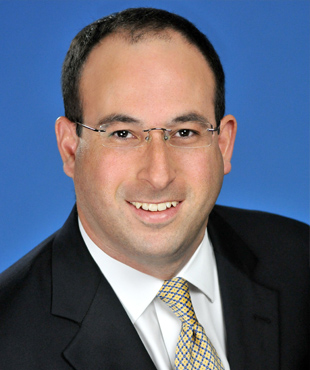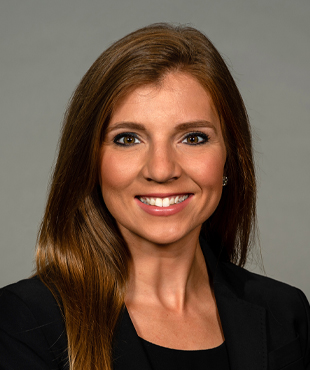Frank Cruz-Alvarez is a Partner with Shook, Hardy & Bacon L.L.P. in the firm’s Miami, FL office, and Britta Stamps Todd is an Associate in the firm’s Kansas City, Mo office. Mr. Cruz-Alvarez is the WLF Legal Pulse’s Featured Expert Contributor on Civil Justice/Class Actions.
***
Decertification of a class is rare. Rarer still is decertification because class counsel no longer adequately represented the class. But a district court sua sponte decertifying a class on that basis is unheard of. Yet the Eastern District of New York did just that, and the Second Circuit affirmed the decertification in its recent Jin v. Shanghai Original, Inc., et al. opinion.
The case began when the named plaintiff filed a putative class action on behalf of himself and other non-managerial employees at a New York restaurant based on alleged violations of their rights under the New York Labor Law and Fair Labor Standards Act. Finding the proposed class satisfied Rule 23(a) and Rule 23(b)(3), the district court certified the class, noting “[t]he crux of the plaintiffs’ claims is susceptible to classwide proof: did the [Defendants] have a policy or practice of paying employees flat rates regardless of minimum wage, overtime, and spread-of-hour requirements?” At the same time, the district court appointed John Troy and Troy Law, PLLC as class counsel based on their “extensive experience litigating employment law cases in this district, including class actions” and their actions taken in the case through the discovery process to that point.
But after certification, class counsel’s performance noticeably declined. Although class counsel convinced the district court to reopen discovery to conduct 28 depositions regarding the Defendants’ potential interference with the class-formation process during the opt-out period, class counsel only conducted three depositions. Class counsel also tried to delay status conferences or failed to timely respond to court orders. Given that the case was based on the employees’ wages, overtime, and hours requirements, class counsel obviously needed to prepare to introduce evidence at trial about the employees’ hours and wages. After initially listing 73 witnesses, most of whom were labeled “class plaintiffs” to testify at trial, their final witness list included only four witnesses, including just two class members. In fact, one of those four witnesses’ anticipated testimony would have undermined the class claims according to the court.
Five days before trial, the district court sua sponte decertified the class, citing “numerous red flags” over the few months leading up to trial. Specifically, the court pointed to class counsel’s disclosure that they planned to call only two class members as witnesses at trial as the “significant intervening event” warranting decertification because class counsel no longer “fairly and adequately represent[ed] the interests of the class” in violation of Rule 23(g). The court concluded that the class members would suffer more prejudice from the inadequate representation of class counsel at trial than from the decertification so close to trial.
The named plaintiff proceeded to a bench trial on his individual FLSA and NYLL claims, resulting in a judgment in the plaintiff’s favor. The court found three Defendants liable for FLSA and NYLL violations and awarded a total of $35,880.30 to the plaintiff. Following the verdict, the plaintiff appealed the decertification of the class. While not the focus of this blog post, the Second Circuit opens its opinion with a lengthy explanation of jurisdictional issues that will undoubtedly impact future cases involving private attorney general interests.
The Second Circuit rejected the plaintiff’s argument that the district court abused its discretion when it decertified the class. Despite some district court opinions seeming to require a significant intervening event in order to decertify a class, the Second Circuit clarified that neither precedent nor Rule 23 requires such a “significant intervening event.” Rather than monitoring for any single event that triggers decertification, the district court has an ongoing duty to “ensure that a certified class satisfies Rule 23 throughout the litigation” and maintains authority “to alter or decertify the class if that is no longer the case.” Whenever the court finds that a previously satisfied Rule 23 requirement is now lacking, the district court can sua sponte decertify the class.
Based on the numerous examples of class counsel’s shortcomings after certification, the Second Circuit affirmed the district court’s decertification decision. In a footnote, the appellate court pointed out that “success as individual counsel does not equal adequate representation as class counsel.” The “win” that counsel achieved for the individual named plaintiff at trial did not equate to the skilled and zealous representation required by class counsel under Rule 23(g).
Achieving class certification is not the finish line for class counsel. Even final approval of a class settlement or a verdict at a class trial require diligent work from class counsel on settlement claims or appeals. The Second Circuit’s decision serves as a warning to the plaintiffs’ bar not to rest on their laurels after winning certification, but holds a lesson for defense counsel too. If plaintiffs are successful at class certification, defendants understandably turn 100% of their focus to trial. But while not all defendants can be lucky enough for a district court to sua sponte decertify the class, they can spare some attention to watch class counsel’s behavior after certification and possibly move to decertify the class on this basis. If defendants notice class counsel canceling previously scheduled depositions, withdrawing witnesses, or seeking delays of the trial date or other important pre-trial deadlines, a motion to decertify due to the inadequacy of class counsel may very well be justified.


